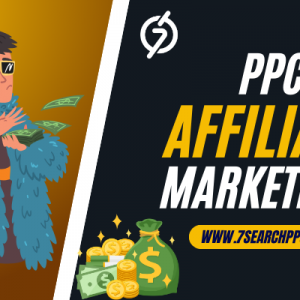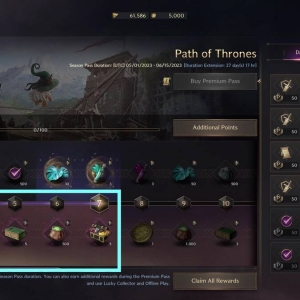In today's digital landscape, businesses are constantly looking for effective ways to reach their target audiences. One of the most powerful tools at their disposal is Pay-Per-Click (PPC) advertising. In this comprehensive guide, we will explore what PPC advertising is, how it operates, and its various components, including PPC advertising platforms and networks.
Understanding PPC Advertising
What is PPC Advertising?
PPC advertising is an online marketing model where advertisers pay a fee each time one of their ads is clicked. Rather than earning organic visits to their websites, advertisers essentially buy visits through PPC ads. This model is most commonly associated with search engines like Google but can also be utilized on social media platforms and other websites.
How PPC Advertising Works
PPC advertising operates on a bidding system. Advertisers select keywords relevant to their business and set a maximum amount they are willing to pay for each click on their ad. When a user searches for those keywords, the search engine or platform evaluates various factors, including the bid amount and ad quality, to determine which ads to display and in what order.
The Benefits of PPC Advertising
PPC advertising offers numerous benefits for businesses, including:
- Immediate Results: Unlike organic search engine optimization (SEO), which can take time to show results, PPC ads can generate traffic almost instantly.
- Targeted Audience: Advertisers can target specific demographics, locations, and interests, ensuring their ads reach the right people.
- Cost Control: With PPC, advertisers have complete control over their budgets. They can set daily or monthly spending limits.
- Measurable Results: PPC advertising provides detailed analytics, allowing businesses to track clicks, conversions, and overall performance.
Key Components of PPC Advertising
PPC Advertising Platforms
A variety of PPC advertising platforms exist, each with its own unique features and advantages. The most prominent platforms include:
Google Ads
Google Ads is the largest PPC advertising platform globally, allowing businesses to create ads that appear on Google’s search engine results pages (SERPs) and its Display Network. Advertisers can choose from different ad formats, including text, display, video, and shopping ads.
Bing Ads
Bing Ads operates similarly to Google Ads but caters to the Bing search engine. While it has a smaller market share, Bing Ads can be a cost-effective alternative, often offering lower competition for certain keywords.
7Search PPC
Use the 7Search PPC Referral Program to open up new earning opportunities! By providing a straightforward referral link, this program enables you to make money off of your internet presence.
PPC Advertising Networks
PPC advertising networks are intermediaries that connect advertisers with publishers. These networks facilitate the placement of ads on various websites and platforms. Some well-known PPC advertising networks include:
Google Display Network (GDN)
GDN allows advertisers to display their ads on millions of websites, reaching a vast audience. It is particularly effective for brand awareness campaigns.
AdRoll
AdRoll specializes in retargeting ads, which target users who have previously visited a website but did not convert. This can be a highly effective strategy for improving conversion rates.
Taboola and Outbrain
These networks focus on content discovery, placing sponsored content on popular news and entertainment websites. They allow advertisers to drive traffic through engaging articles or videos.
Setting Up a PPC Campaign
Define Your Goals
Before launching a PPC campaign, it’s essential to define your objectives. Are you looking to increase website traffic, generate leads, or drive sales? Your goals will inform your strategy and help you measure success.
Conduct Keyword Research
Keyword research is crucial for identifying the terms your target audience is searching for. Use tools like Google Keyword Planner, SEMrush, or Ahrefs to find relevant keywords and assess their competition and search volume.
Choose Your PPC Advertising Platform
Select a PPC advertising platform that aligns with your goals and target audience. Google Ads is ideal for search-based campaigns, while social media platforms may be better for brand engagement and awareness.
Create Compelling Ads
Your ad copy should be engaging and relevant to the keywords you are targeting. Focus on creating compelling headlines, clear calls-to-action, and eye-catching visuals if applicable.
Set Your Budget
Determine how much you are willing to spend on your PPC campaign. Most platforms allow you to set daily or monthly budgets, ensuring you never exceed your financial limits.
Launch Your Campaign
Once everything is in place, launch your campaign and monitor its performance closely. Make adjustments as needed to optimize for better results.
Optimizing Your PPC Campaign
Continuous Monitoring and Adjustment
To ensure the success of your PPC campaign, continuous monitoring is crucial. Analyze metrics such as click-through rates (CTR), conversion rates, and return on ad spend (ROAS). Make adjustments based on performance data, such as pausing underperforming ads or reallocating budget to higher-performing keywords.
A/B Testing
A/B testing involves creating two versions of an ad to determine which performs better. This can include variations in headlines, ad copy, and visuals. By systematically testing different elements, you can identify what resonates most with your audience.
Keyword Management
Regularly review and update your keyword list. Add new keywords that may be relevant and pause or remove those that are underperforming. Utilize negative keywords to prevent your ads from appearing for irrelevant searches.
Landing Page Optimization
The effectiveness of your PPC ads also depends on the landing pages they direct users to. Ensure that your landing pages are optimized for conversion, with clear calls-to-action and relevant content that matches the ad’s promise.
Conclusion
PPC advertising is a powerful tool that can drive targeted traffic and generate measurable results for businesses of all sizes. By understanding how PPC operates, choosing the right advertising platforms and advertising networks, and continuously optimizing campaigns, advertisers can harness the full potential of this marketing strategy.
Whether you're a small business looking to gain traction or a large enterprise aiming to dominate your industry, PPC advertising can be a valuable component of your digital marketing arsenal. With careful planning, execution, and monitoring, you can achieve your marketing goals and maximize your return on investment.
FAQs About PPC Advertising(FAQs)
What is the difference between PPC and SEO?
Ans. PPC (Pay-Per-Click) advertising is a paid marketing strategy where advertisers pay for clicks on their ads, while SEO (Search Engine Optimization) focuses on optimizing content to rank organically in search engine results without direct payment for clicks.
How much does PPC advertising cost?
Ans. The cost of PPC advertising varies widely based on factors such as industry, competition, and keywords. Advertisers set their own bids, and costs can range from a few cents to several dollars per click.
Is PPC advertising suitable for small businesses?
Ans. PPC advertising can be highly effective for small businesses. It allows them to reach specific audiences without the need for large marketing budgets, making it a cost-effective way to generate leads and drive sales.
How can I measure the success of my PPC campaign?
Ans. Success can be measured using various metrics, including click-through rate (CTR), conversion rate, return on investment (ROI), and cost per conversion. Most PPC platforms provide detailed analytics to help track performance.
Can I run PPC ads without a website?
Ans. While having a website is highly recommended for conversion purposes, some platforms, like social media, allow advertisers to run ads that promote their social media pages or specific actions (like app installs) without a traditional website.









